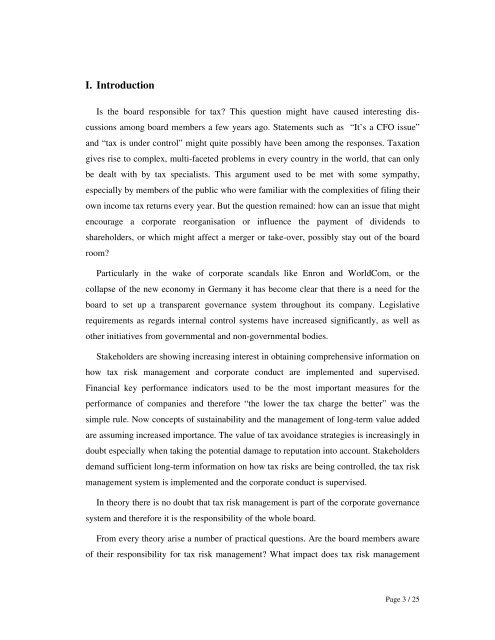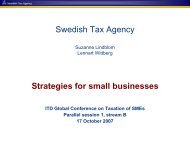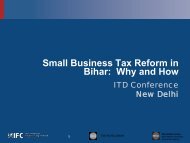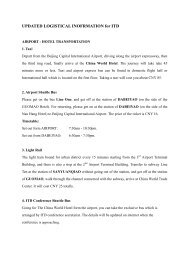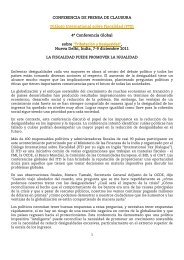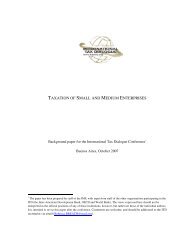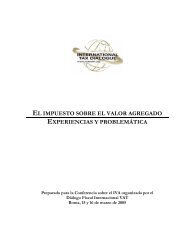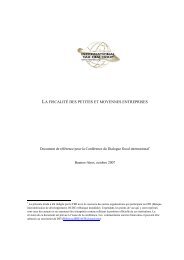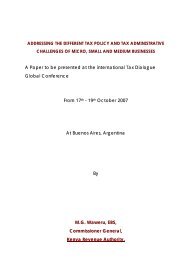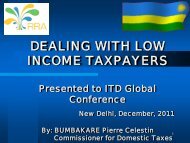Tax Risk Management and Board Responsibility - International Tax ...
Tax Risk Management and Board Responsibility - International Tax ...
Tax Risk Management and Board Responsibility - International Tax ...
Create successful ePaper yourself
Turn your PDF publications into a flip-book with our unique Google optimized e-Paper software.
I. Introduction<br />
Is the board responsible for tax? This question might have caused interesting discussions<br />
among board members a few years ago. Statements such as “It’s a CFO issue”<br />
<strong>and</strong> “tax is under control” might quite possibly have been among the responses. <strong>Tax</strong>ation<br />
gives rise to complex, multi-faceted problems in every country in the world, that can only<br />
be dealt with by tax specialists. This argument used to be met with some sympathy,<br />
especially by members of the public who were familiar with the complexities of filing their<br />
own income tax returns every year. But the question remained: how can an issue that might<br />
encourage a corporate reorganisation or influence the payment of dividends to<br />
shareholders, or which might affect a merger or take-over, possibly stay out of the board<br />
room?<br />
Particularly in the wake of corporate sc<strong>and</strong>als like Enron <strong>and</strong> WorldCom, or the<br />
collapse of the new economy in Germany it has become clear that there is a need for the<br />
board to set up a transparent governance system throughout its company. Legislative<br />
requirements as regards internal control systems have increased significantly, as well as<br />
other initiatives from governmental <strong>and</strong> non-governmental bodies.<br />
Stakeholders are showing increasing interest in obtaining comprehensive information on<br />
how tax risk management <strong>and</strong> corporate conduct are implemented <strong>and</strong> supervised.<br />
Financial key performance indicators used to be the most important measures for the<br />
performance of companies <strong>and</strong> therefore “the lower the tax charge the better” was the<br />
simple rule. Now concepts of sustainability <strong>and</strong> the management of long-term value added<br />
are assuming increased importance. The value of tax avoidance strategies is increasingly in<br />
doubt especially when taking the potential damage to reputation into account. Stakeholders<br />
dem<strong>and</strong> sufficient long-term information on how tax risks are being controlled, the tax risk<br />
management system is implemented <strong>and</strong> the corporate conduct is supervised.<br />
In theory there is no doubt that tax risk management is part of the corporate governance<br />
system <strong>and</strong> therefore it is the responsibility of the whole board.<br />
From every theory arise a number of practical questions. Are the board members aware<br />
of their responsibility for tax risk management? What impact does tax risk management<br />
Page 3 / 25


